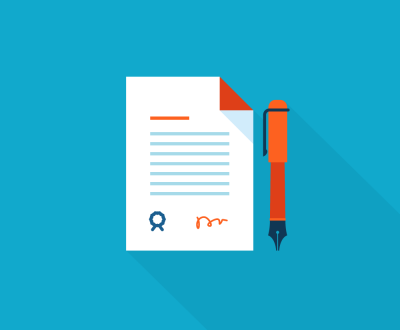AI : the major disruptor for 2023?
- January 19, 2023
- Emerging technologies, Online marketing
We’re living in an age of rapid technological advancement. Artificial Intelligence (AI) is quickly becoming part of our daily lives, from voice assistants to self-driving cars. But with these advances come a range of questions: what are the benefits and risks of AI? How will it shape our future? In this blog post, we’ll explore what you need to know about AI and why you need to act now to prepare for the coming wave of AI-driven technologies.
Introduction to Artificial Intelligence
At its core, AI is a set of algorithms and programming techniques that allow machines to learn from data and perform tasks that traditionally require human intelligence. AI is already being used in a wide range of applications, from facial recognition to natural language processing. As AI continues to develop, it’s expected to become even more embedded in our lives, with implications for everything from healthcare to the economy.
Despite its potential, AI can also be a source of concern. As with any new technology, there are ethical, legal, and practical implications that need to be considered. In this blog post, we’ll examine what you need to know about AI and why you need to act now to prepare for the coming wave of AI-driven technologies.
What are the Benefits of AI?
The potential benefits of AI are vast and far-reaching. AI can help to streamline complex processes, accelerate decision-making, and reduce human errors. It can also be used to create new services and products, as well as to personalize experiences for customers. AI can even help to improve healthcare, giving doctors access to more accurate diagnoses and better treatment options.
In the business world, AI has the potential to drive greater efficiency and productivity, while also reducing costs. AI can also help to identify patterns in data that help companies to make better decisions and stay ahead of their competition.
What are the Risks of AI?
The risks associated with AI are just as important as the benefits. As AI becomes more advanced and widespread, there are concerns about its impact on jobs, privacy, and security. As AI-driven technologies become more commonplace, there is a risk of data misuse and privacy violations.
AI also raises ethical questions. As machines become more autonomous and capable of making decisions, who will be responsible for those decisions? Who will be held accountable if something goes wrong? These are questions that governments and organizations will need to grapple with as AI-driven technologies become more widespread.
Understanding the Potential Impact of AI
To understand the potential impact of AI, it’s important to look at the wider context. AI has the potential to transform society, from how we work and live to how we interact with each other. It can also have a huge impact on the economy, with knock-on effects for businesses, governments, and individuals.
For example, AI could lead to job losses as machines become more capable of performing tasks traditionally done by humans. At the same time, AI could create new jobs and opportunities, such as data scientists, AI engineers, and AI consultants. It’s important to look at the bigger picture to understand the full implications of AI.
Who is Impacted by AI?
The impact of AI will be felt across all sectors, from healthcare to manufacturing. AI has the potential to disrupt entire industries, with some jobs becoming obsolete while new jobs are created. It’s important to consider the potential impacts on different groups, such as workers, business owners, and consumers.
For example, AI could lead to job losses for low-skilled workers, while high-skilled workers may be able to use AI to become more productive and efficient. Businesses could use AI to create new products and services, while consumers could benefit from more efficient services and personalized experiences.
What Can You Do to Prepare for AI?
As AI becomes more widespread, it’s important to prepare for the potential impacts. Governments, businesses, and individuals all need to take steps to ensure that they’re ready for the coming wave of AI-driven technologies.
For individuals, this could mean taking steps to develop the skills and knowledge needed to succeed in the AI-driven economy. Business owners need to consider the potential impacts of AI on their operations and take steps to ensure that they’re prepared. Governments need to consider the ethical and legal implications of AI, as well as the potential economic and social impacts.
How to Monitor and Manage AI
As AI becomes more embedded in our lives, it’s important to have systems in place to monitor and manage the technology. Governments and organizations need to have clear policies and procedures in place to ensure that AI is used responsibly and ethically.
It’s also important to consider the potential impacts of AI on different groups. For example, governments need to ensure that AI is not used to discriminate against certain groups. Businesses need to consider the potential impacts of AI on their workforce and ensure that workers are not disadvantaged.
What Are the Ethical Considerations of AI?
As AI becomes more advanced, it’s important to consider the ethical implications of the technology. This includes questions such as who is responsible for decisions made by AI and how to ensure that AI is not used to discriminate against certain groups.
It’s also important to consider the potential impacts of AI on different groups, such as workers and consumers. Governments and organizations need to ensure that AI is used responsibly and ethically and that the potential impacts are fully understood.
What Are the Legal Considerations of AI?
As with any new technology, there are legal implications that need to be considered. These include questions such as who is liable for decisions made by AI and how to ensure that data is used responsibly. Governments and organizations need to have clear policies and procedures in place to ensure that AI is used in a responsible manner.
It’s also important to consider the potential impacts of AI on different groups, such as workers and consumers. Governments and organizations need to ensure that AI is not used to discriminate against certain groups and that the potential impacts are fully understood.
What are the Future Implications of AI?
The potential implications of AI are vast and far-reaching. AI has the potential to transform society, from how we work and live to how we interact with each other. It could also have huge implications for the economy, with knock-on effects for businesses, governments, and individuals.
It’s important to consider the potential implications of AI now to ensure that we’re prepared for the future. Governments, businesses, and individuals all need to take steps to ensure that they’re ready for the coming wave of AI-driven technologies.
Conclusion
AI is an exciting and rapidly advancing technology with the potential to transform society and the economy. But with these advances come a range of questions and concerns. It’s important to understand what you need to know about AI and why you need to act now to prepare for the coming wave of AI-driven technologies. Governments, businesses, and individuals all need to take steps to ensure that they’re ready for the coming wave of AI-driven technologies. By taking the time to understand the potential benefits and risks of AI, we can ensure that we’re prepared for the future.
This is author biographical info, that can be used to tell more about you, your iterests, background and experience. You can change it on Admin > Users > Your Profile > Biographical Info page."
About us and this blog
We are a digital marketing company with a focus on helping our customers achieve great results across several key areas.
Request a free quote
We offer professional SEO services that help websites increase their organic search score drastically in order to compete for the highest rankings even when it comes to highly competitive keywords.
Subscribe to our newsletter!
More from our blog
See all postsRecent Posts
- Hello Metaverse! January 19, 2023
- AI : the major disruptor for 2023? January 19, 2023
- Is Search Engine Submission Necessary? April 17, 2014






